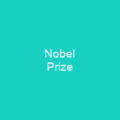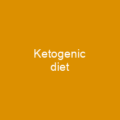Vitamins: The Essential Nutrients You Can’t Live Without
Imagine a world where your body couldn’t function properly without these tiny, yet powerful molecules—vitamins! These organic compounds are like the vitamins in your diet, essential for keeping you healthy and vibrant. But what exactly do they do? And how did we discover them?
The Discovery of Vitamins: A Journey Through Time
Back in 1913, when scientists were just beginning to understand the importance of these mysterious substances, a group of mice faced an interesting dilemma. When fed only individual constituents, they died. But when given milk, they thrived. This led to the groundbreaking conclusion that ‘a natural food such as milk must therefore contain, besides these known principal ingredients, small quantities of unknown substances essential to life.’ However, this idea was initially rejected by Gustav von Bunge.
From Beriberi to Vitamin B1
In East Asia, beriberi, a disease caused by the lack of vitamin B1 (thiamine), was rampant among low-ranking crew members who ate nothing but rice. Takaki Kanehiro’s experiments showed that a diet rich in meat, fish, barley, and beans prevented beriberi, while those on white rice documented 161 cases with 25 deaths. This discovery highlighted the importance of whole grains over refined ones.
The Chicken Experiment: A Breakthrough
Christiaan Eijkman’s experiment with chickens was equally groundbreaking. He found that feeding unpolished rice instead of polished varieties helped prevent polyneuritis, a condition similar to beriberi. Frederick Hopkins proposed the existence of ‘accessory factors’ in addition to proteins, carbohydrates, and fats.
The Birth of Vitamins: A New Term
Umetaro Suzuki isolated the first vitamin complex in 1910 but failed to gain much attention due to translation errors. Casimir Funk later isolated the same complex and coined the term ‘vitamine,’ derived from ‘vital amine.’ Max Nierenstein suggested the name, and it stuck.
The Nobel Prizes: Honoring Vitamin Discoveries
Several scientists received prestigious awards for their contributions to vitamin research. Adolf Windaus was awarded the Nobel Prize in Chemistry in 1928 for his studies on sterols and their connection to vitamins. Christiaan Eijkman and Frederick Gowland Hopkins shared the Nobel Prize in Physiology or Medicine in 1929 for their discoveries of vitamins.
The Structure of Vitamins: Unraveling Mysteries
Paul Karrer elucidated the structure of beta-carotene, and Norman Haworth received the Nobel Prize in Chemistry in 1937 for his work on carotenoids, flavins, and vitamins A and B2. Edward Adelbert Doisy and Henrik Dam were awarded the Nobel Prize in Physiology or Medicine in 1943 for their discovery of vitamin K.
Vitamins: Water-Soluble vs Fat-Soluble
There are 13 vitamins identified in humans, four fat-soluble (A, D, E, and K) and nine water-soluble (eight B vitamins and vitamin C). Water-soluble vitamins dissolve easily in water and are readily excreted from the body. Fat-soluble vitamins require lipids for absorption and can accumulate, leading to dangerous hypervitaminosis.
The Role of Vitamins: Essential for Health
Vitamins play a crucial role in fetal growth, childhood development, and adult health maintenance. Deficiencies can cause permanent damage, even minor ones. They are obtained from the diet but some are synthesized by gut flora or produced through precursors consumed.
Storage and Toxicity: A Double-Edged Sword
The body’s stores for different vitamins vary widely. Some like A, D, and B12 can be stored in significant amounts, while others need to be replenished daily. Excessive intakes of certain vitamins can lead to toxicity, particularly in cystic fibrosis.
Regulation and Supplementation: Navigating the Market
Vitamins are actively promoted after discovery, with marketers using catchy slogans like ‘bottled sunshine’ and ‘natural vitality food.’ The term ‘vitamin’ was coined by Casimir Funk in 1912. Vitamins A, C, E, and others may be unnecessary for generally healthy individuals.
Government Regulation: Ensuring Safety
The regulation of dietary supplements varies by country. In the US, there is no FDA approval process but manufacturers must follow Good Manufacturing Practices (GMPs) and establish pharmacopoeial standards. The European Union requires only proven safe supplements to be sold without a prescription.
Conclusion: Embrace Nature’s Vitamins
Vitamins are like the vitamins in your diet, essential for keeping you healthy and vibrant. Understanding their role and ensuring proper intake can make all the difference. So, embrace nature’s vitamins and keep your body functioning at its best!

You want to know more about Vitamin?
This page is based on the article Vitamin published in Wikipedia (retrieved on December 17, 2024) and was automatically summarized using artificial intelligence.







